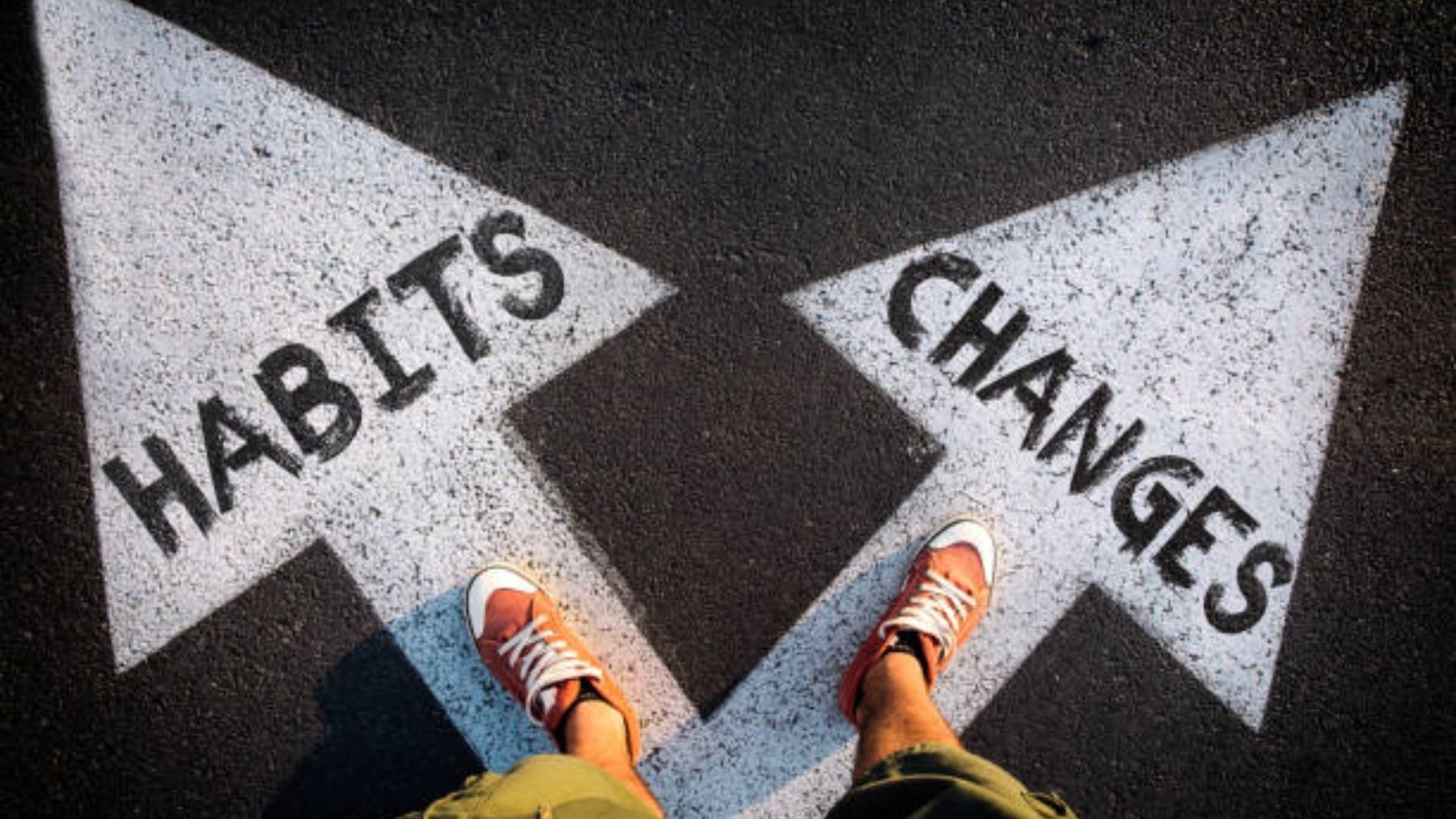Note: This article is by Mark Chernoff, who talks about the best ways to introduce new habits into our lives in order to increase our experience and achieve our goals.
During that time, we have experienced the loss of two loved ones to suicide, illness, infidelity, the loss of our jobs, financial instability, and so much more. The pain of those events in our lives devastated us for a few years in a row.
Sometimes we felt we had no more energy to continue living our lives, which inspired us to start a blog and start writing on it. We resorted to using that blog as a general means of expression to vent our feelings and concerns and as a daily record to hold ourselves accountable when we were going through the worst phase of our lives. We wrote in it about our suffering and losses, the lessons we had learned and were still learning from that difficult time, and the actions and behaviors we knew we had to take responsibility for if we wanted to get through that ordeal.
We accidentally discovered sprouts of strength and wisdom that we started to gather and build ourselves as we began to live our new reality day by day and write articles on our blog one by one in an effort to confront and explore the pain instead of distracting ourselves from it.
We gradually learned how to discipline ourselves in negative emotional states so that we could overcome the feelings that exhausted us in the past.
With all of our might, we literally forced ourselves to take one actionable step after another, such as engaging in an honest conversation, exercising, or engaging in a five-minute meditation, and then write about it.
Although it was never simple, the straightforward steps and manageable actions were simple to carry out and keep track of, and the daily rituals we followed by writing about them helped us get back to being active and in our normal state.
In the end, it was that difficult time we endured that altered the course of our lives and gradually prepared us for the productive work that we are currently engaging in in terms of writing and personal development training. Our routines, practices, and habits have changed as a result of pain and suffering, and over time, our ability to consistently follow our routines has allowed us to become experts in them.

Advice to consider
Numerous people ask us for advice all the time, and the majority of them are our friends and peers who work in the coaching and self-help industries with us. That's because we just published a new book called The Return to Happiness: Change Your Thoughts and Reality and Turn Adversity into Triumphs, which is a breakthrough that abruptly altered many of the above people's perspectives on our level of expertise and quickly became a New York Times bestseller.
Because there is no universally applicable advice, I can only say that one of the main habits that helped us write our best-selling book was consistently writing about the same subject every day for ten years in a row.
The reason most of our friends and peers don't write every day is because most people aren't used to working steadily and uninterruptedly, which we know from experience because we were once like them. However, since then, we've discovered, out of necessity, that consistency and regularity are the cornerstones of everything.
In order to be able to live the best part of your life in a way that most people cannot, you must first ask yourself whether you are willing to spend some time each day. You should take this into consideration as you work toward acquiring experience and achieving your goals.
After asking yourself this question, give it some thought and allow yourself enough time to process it, because if you repeatedly practice what you do throughout your life, you will eventually become an expert at it.
It is strange that nothing gradually changes from day to day, but when you look back one day, you'll find that everything has changed. This must be due to the power of daily routines and habits. It's time to consider your routine, daily habits, and the everyday activities that consume the majority of your attention and energy because those simple things define you in many ways, and many of the most important achievements and results that you achieve in your life arise from them, such as awards, accolades, relationships with others, love in your life, and lessons that you draw from your experiences.
You don't suddenly become a successful person, regardless of your special abilities, knowledge, circumstances, or personal definition of success; rather, you turn into a successful person and gradually gain experience over time based on your habits and daily routine that you follow.
Because failure occurs in the same manner, you must really coordinate and organize your daily habits, be in tune with what is good for you, and adhere to them.
As all of your small, daily failures, which you do not learn from or invest in growth and progress, combine and push you toward failure.
Let's consider business management as an example. You will discover one day that your business or company has failed and that it was due to your habits or all the little things you did or didn't do on a daily basis, not just one mysterious catastrophic event, if you consistently neglect to check records, make the necessary phone calls, listen to your customers' feedback, do the simple things you should do, or if you consistently fail to innovate. Here, I'll remind you again to consider how the aforementioned relate to your life.
Your life is an issue that is personal to you and you alone
The value of making wise decisions every day is frequently underestimated, while the importance of a significant, defining life event is frequently overstated.
Don't be one of them, and keep in mind that the majority of outcomes and accomplishments,both positive and negative, are the result of numerous small choices you've made gradually over time. Your daily routine and habits, which gradually determine your success or failure, are a major topic of our aforementioned book.
What you must remember above all is that nothing will change your path in life or you will see only a small amount of progress and development unless you create daily habits that reinforce what you hope to achieve, and you should believe this.
Over the past decade, my wife and I have successfully worked with hundreds of interns and attendees from around the world at our “Think Better, Live Better” conference who were striving to achieve life goals. The strategy of regularity and consistency has proven to be effective in their lives.

If you are not willing to follow routine daily habits in your life, you do not have a genuine desire to achieve that great goal in your life—as our goal in writing the best-selling book is—as much as you say you do; rather, you are just a person who likes the idea of being successful or an expert in a field but does not want to put that idea into action every day.
But if you truly want to succeed as much as you claim, it's time to develop and implement the right daily habits in your life, beginning today.
The starting point
You must be thinking now that you have decided where to begin and how to stick to a new routine or habit that you have decided to add to your life, and I will share with you some of the rules for building habits that are fairly simple. You will find them successful but flawless in general if you stick to them seriously and diligently.
The following three rules are critical to making your habits manageable. Start with just one ritual, keep it small and simple, and maintain it for at least 60 days:
1. Focus on just one positive change at a time
Unfortunately, you, like most people, can break this rule, but don't be surprised if you fail as a result. If you try to do too many things at once, you will fail at many of them. So you must make only one positive change in your life and implement it as a routine for a month before considering making changes to it or implementing another change alongside it. You must not build anything on the basis of your new routine until you are successful with it; otherwise, you must continue with it until it becomes an order. It naturally follows you around without your intervention.
2. Begin with simple and easy-to-implement habits
You've probably heard this advice before, but unfortunately, most people ignore it. This advice is to begin with a daily routine or habit that lasts no more than ten minutes. If you find it difficult to continue it for ten minutes and fail, you should reduce its duration to five or even three minutes and then continue in this manner for a month before increasing the duration of its practice again.
3. Always keep in mind that developing habits and routines takes time
We always tell our clients that it takes 60 days for a new habit or routine to become a habit. They can attach to it and become accustomed to it by then, and this shift in outlook on life is critical.
People begin to see the positive change they have implemented in their lives through it, and they feel satisfied as if they have received some reward while observing that this change reformulates their lives and transforms them into better and calmer people.
.jpg_a9632bdf8904621_large.jpg)
As for my wife and I, ever since the first routine or habit we followed returned to us with great benefits and helped us get through that extremely challenging and painful period in our lives that I previously mentioned, we have actually put dozens of other life-changing habits into practice over the years, such as exercising, meditating, or writing notes every day.
We gathered these routines or habits and adopted them into our lives by applying them one after the other. Every time, we used to pick a single new habit to work on, and we would gradually introduce it into our daily routines—usually for no more than five minutes.
We started social responsibility and motivation on Facebook and asked our family members to check in with us every day to see if we were sticking to our plan and making progress toward getting back in shape. We also set up easy ways to motivate our habits, like walking home from work, and we consciously start practicing our new habit each time one of these ways occurs.
We even kept track of the small steps we were making each day by marking on the calendar next to each day that we were able to complete our daily habit to the fullest. Our goal then was not to break the daily chain of a habit on that calendar.
Once we were comfortable doing that new routine or habit for five minutes a day for about 60 days, we would increase it to seven minutes a day, then ten minutes a day, and so on, and that's really it, which is at least the simple baseline of reference about how to gain extensive experience in the important things in your life that you are not very good at doing yet, from overcoming painful life challenges and difficult obstacles to achieving your greatest dreams and finally getting what you really want from this life.
In conclusion
Renewing your self-confidence is without a doubt the most important hidden benefit of practicing daily routines or habits on a consistent basis. In fact, what my wife and I lacked
before we learned to implement this type of daily routine, we had confidence in our
actual ability to achieve the achievements and positive results that we desire in our lives. Our failure in the past, our despair, and our loss of motivation within us prompted us many times to start subconsciously choosing procrastination and preferring it over future attempts to fulfill the promises we made to ourselves to heal from all the difficulties and pains that we went through and to develop and prosper in various fields.
We basically lost our confidence in our abilities and ourselves. It's like someone else is constantly lying to you, which will make you lose confidence in them in the end, as the same is true for the simple promises that you always make to yourself, which always end in great disappointment. You will stop trusting yourself in the end, and the solution in the end is similar in most cases.
As you will have to gradually renew your self-confidence by making small promises to yourself that you can fulfill and taking small steps represented in your daily habits towards achieving your goals and achieving small victories, I remind you again that this process requires time. However, you will reach your goal relatively quickly if you stick to it, as it is without the slightest doubt one of the most important life-changing things you can do for yourself.






Add comment